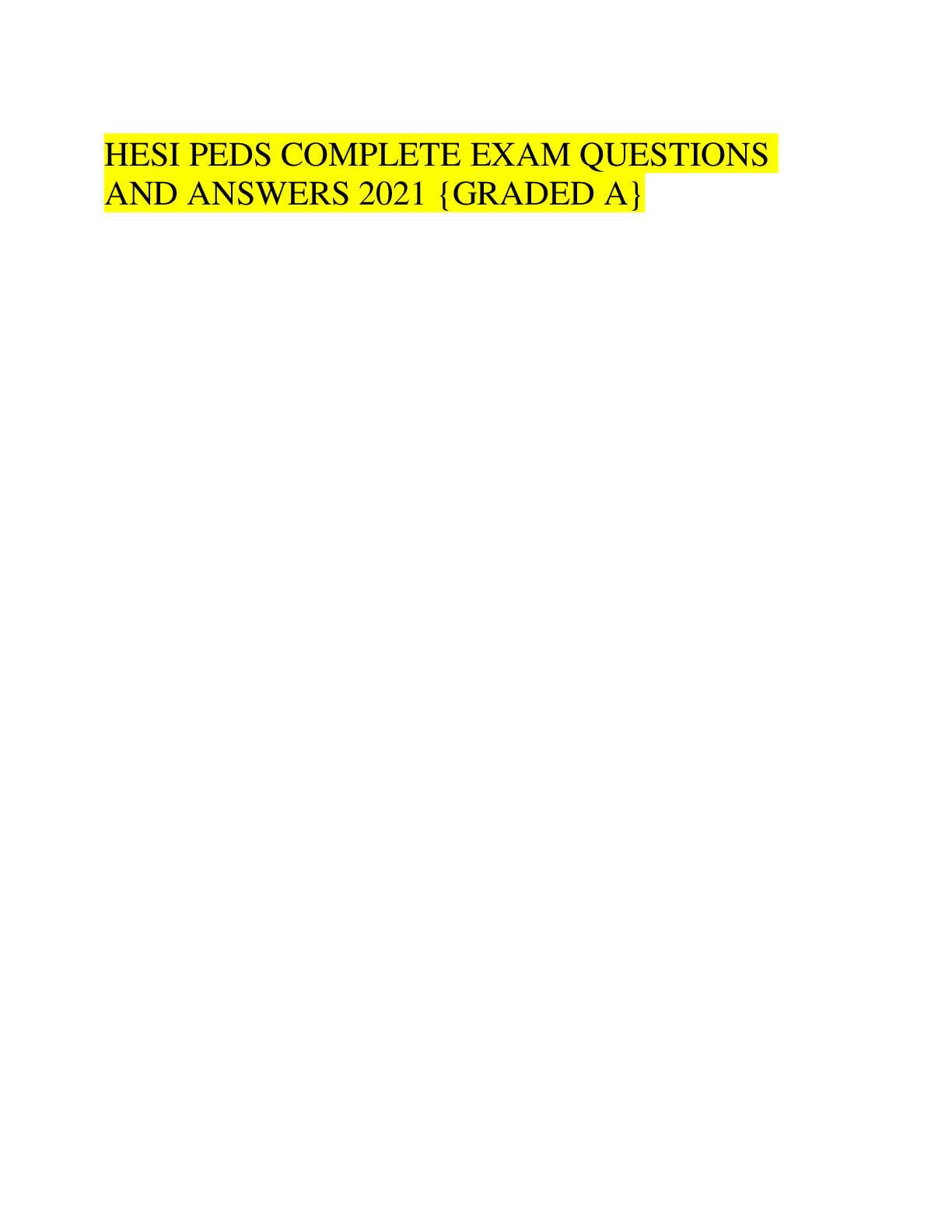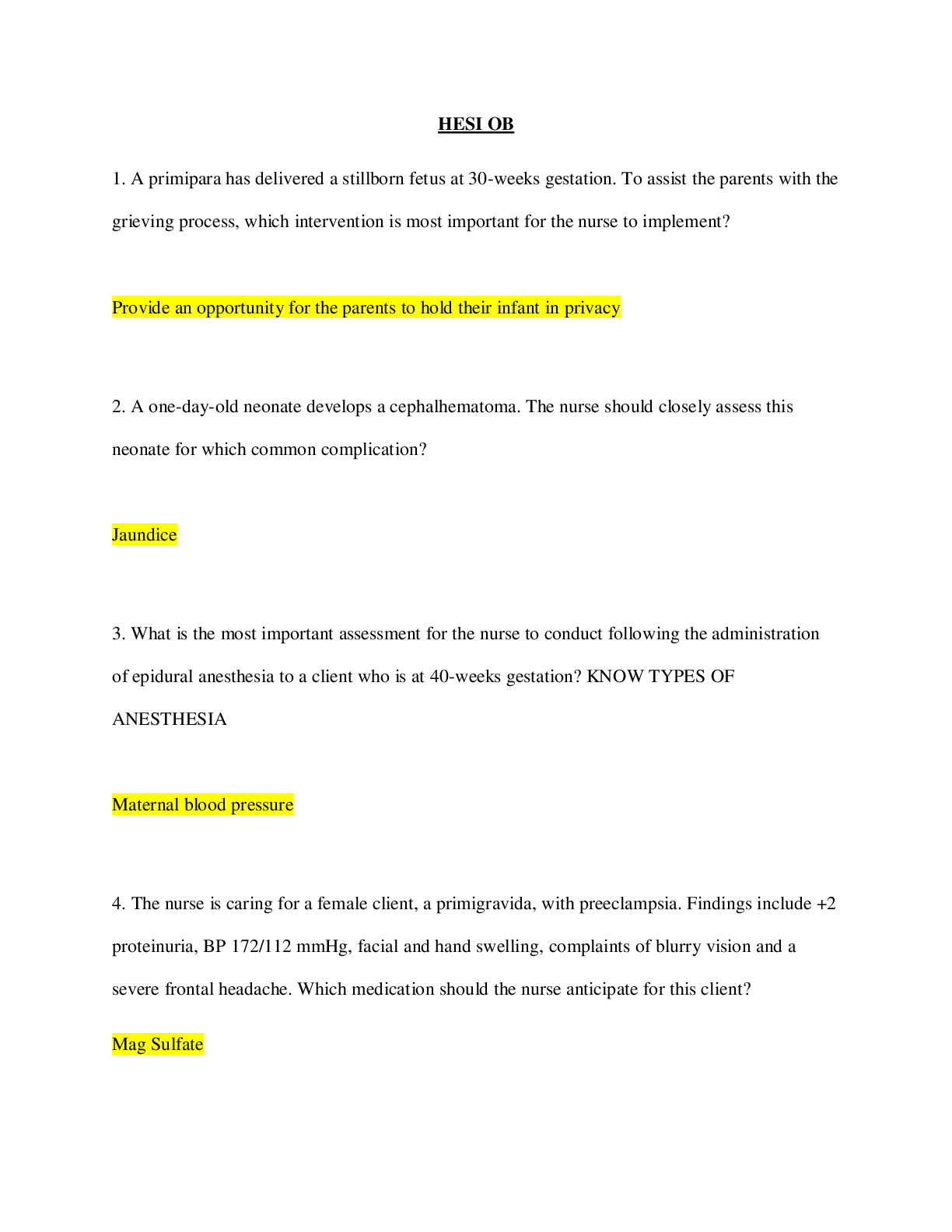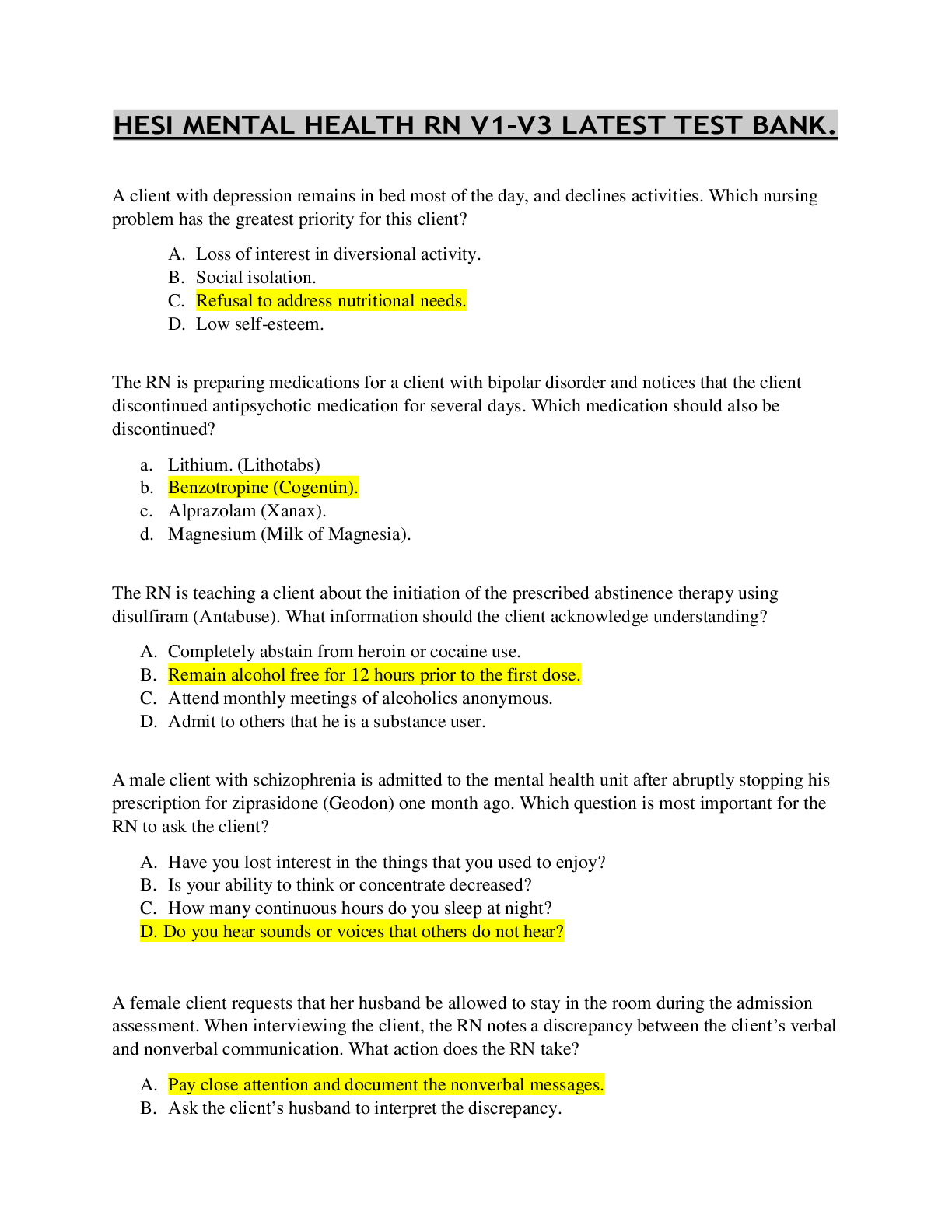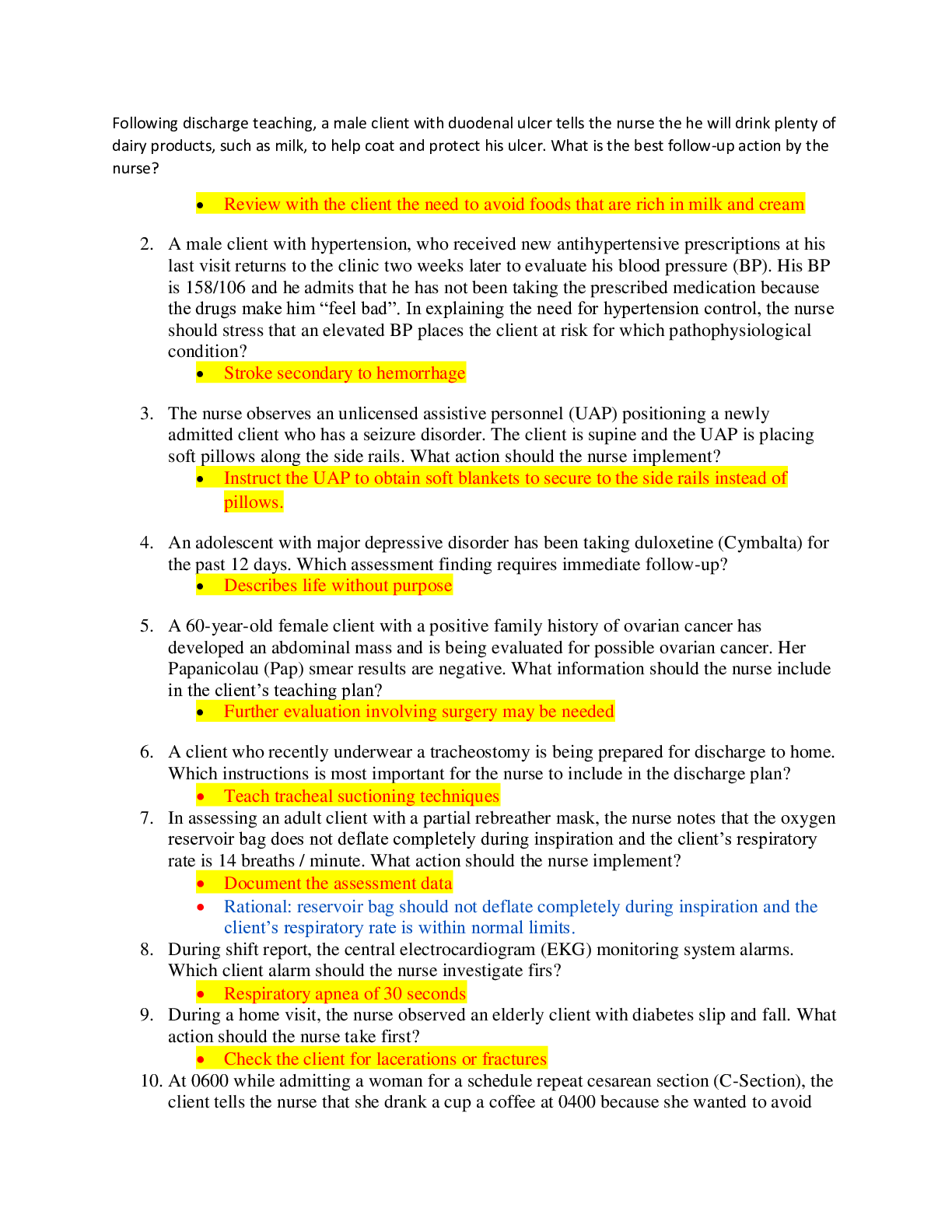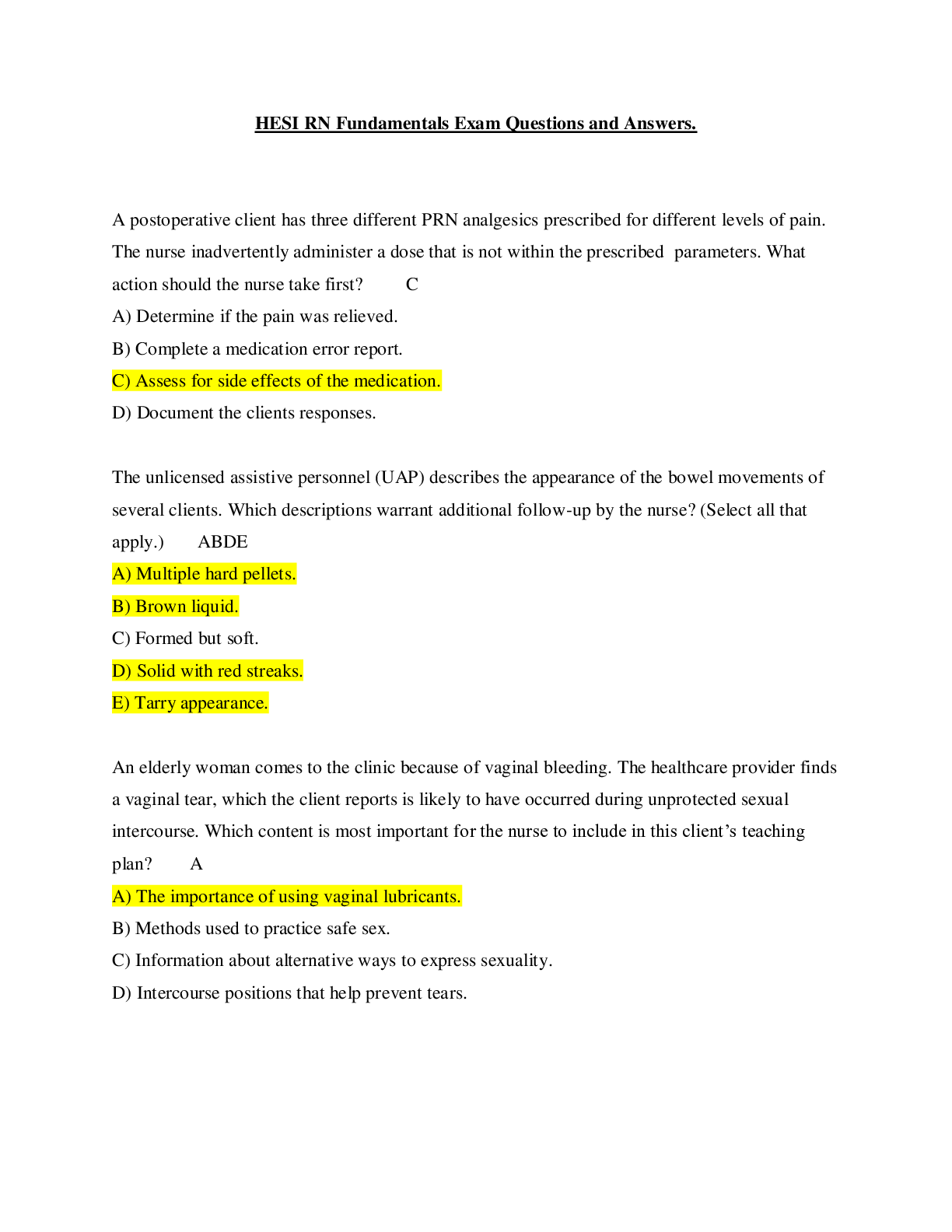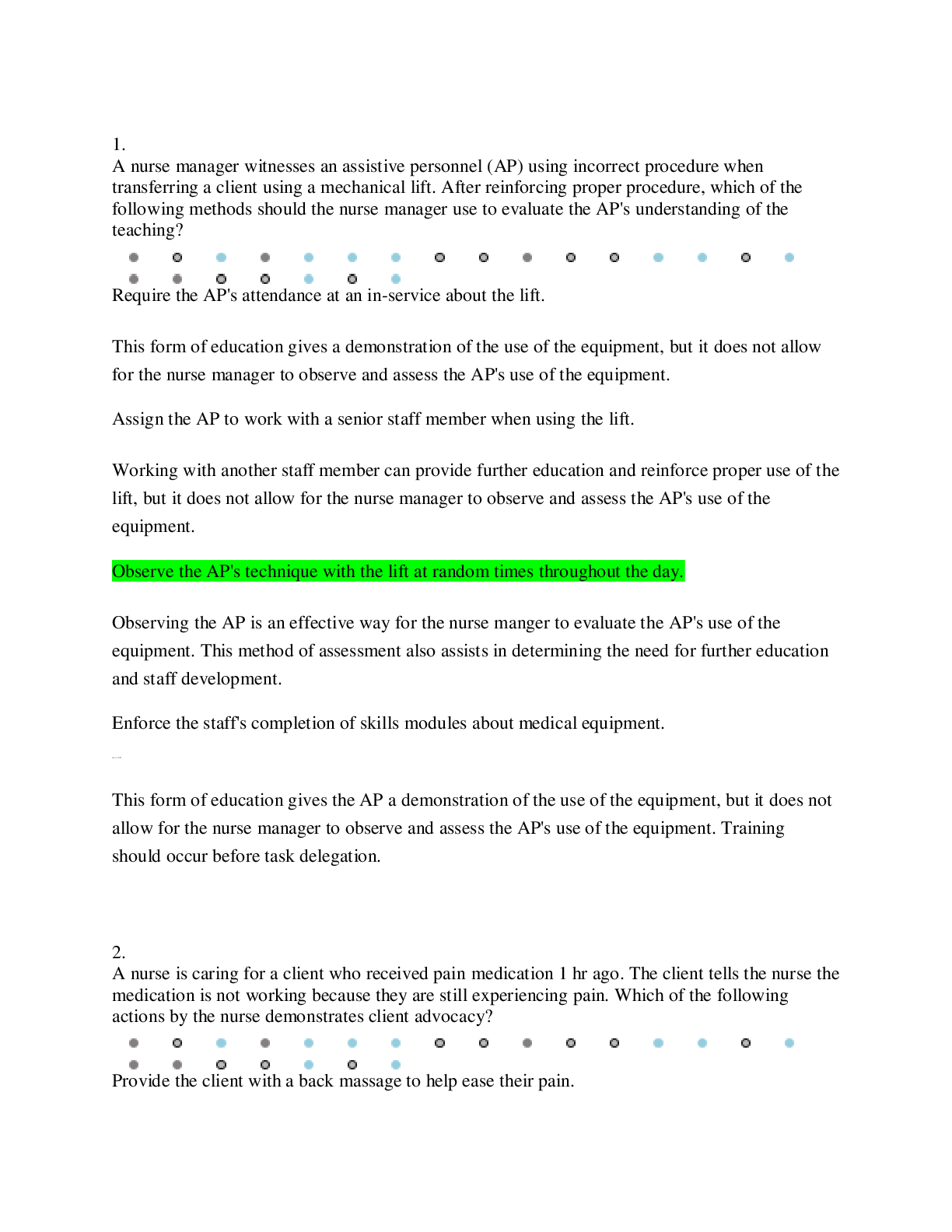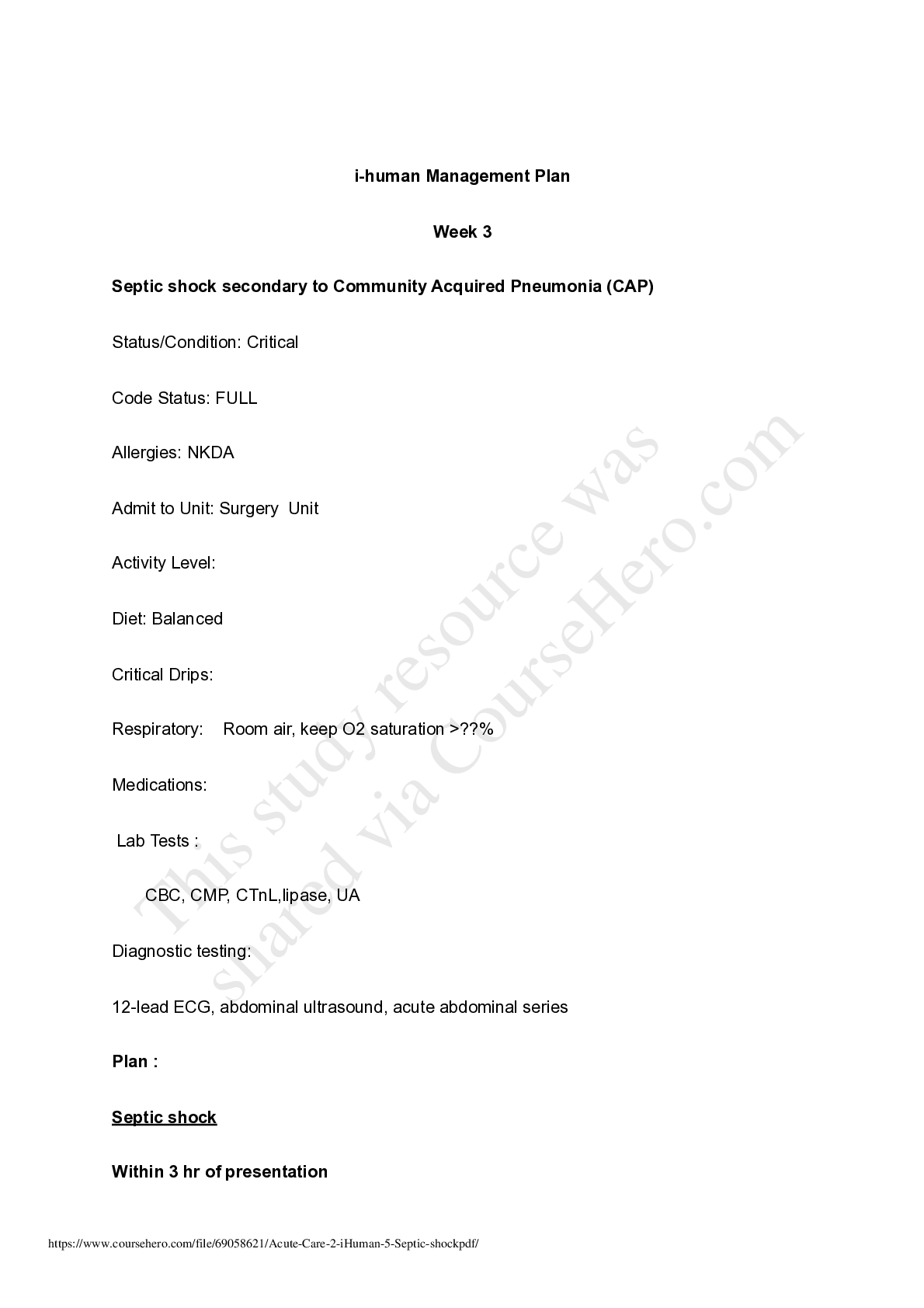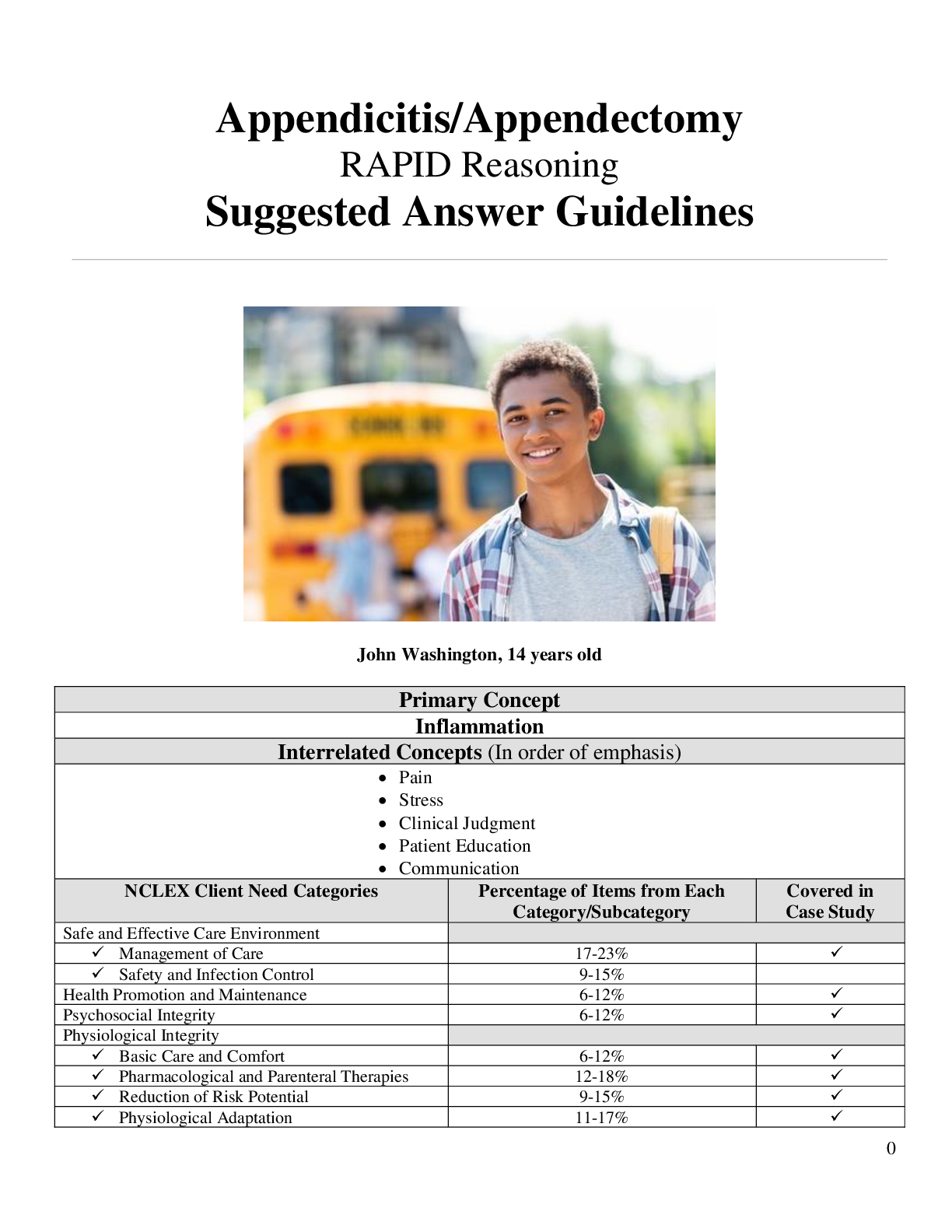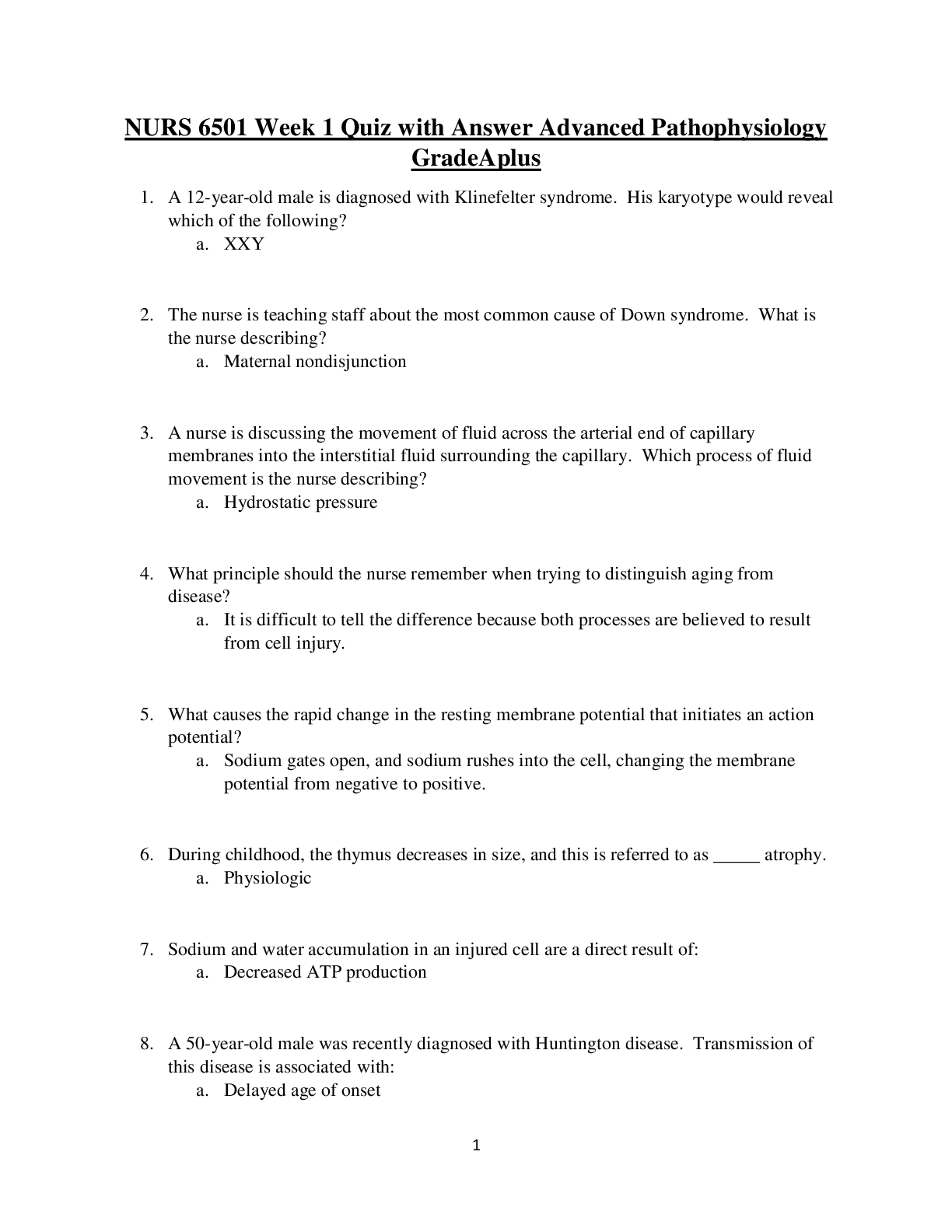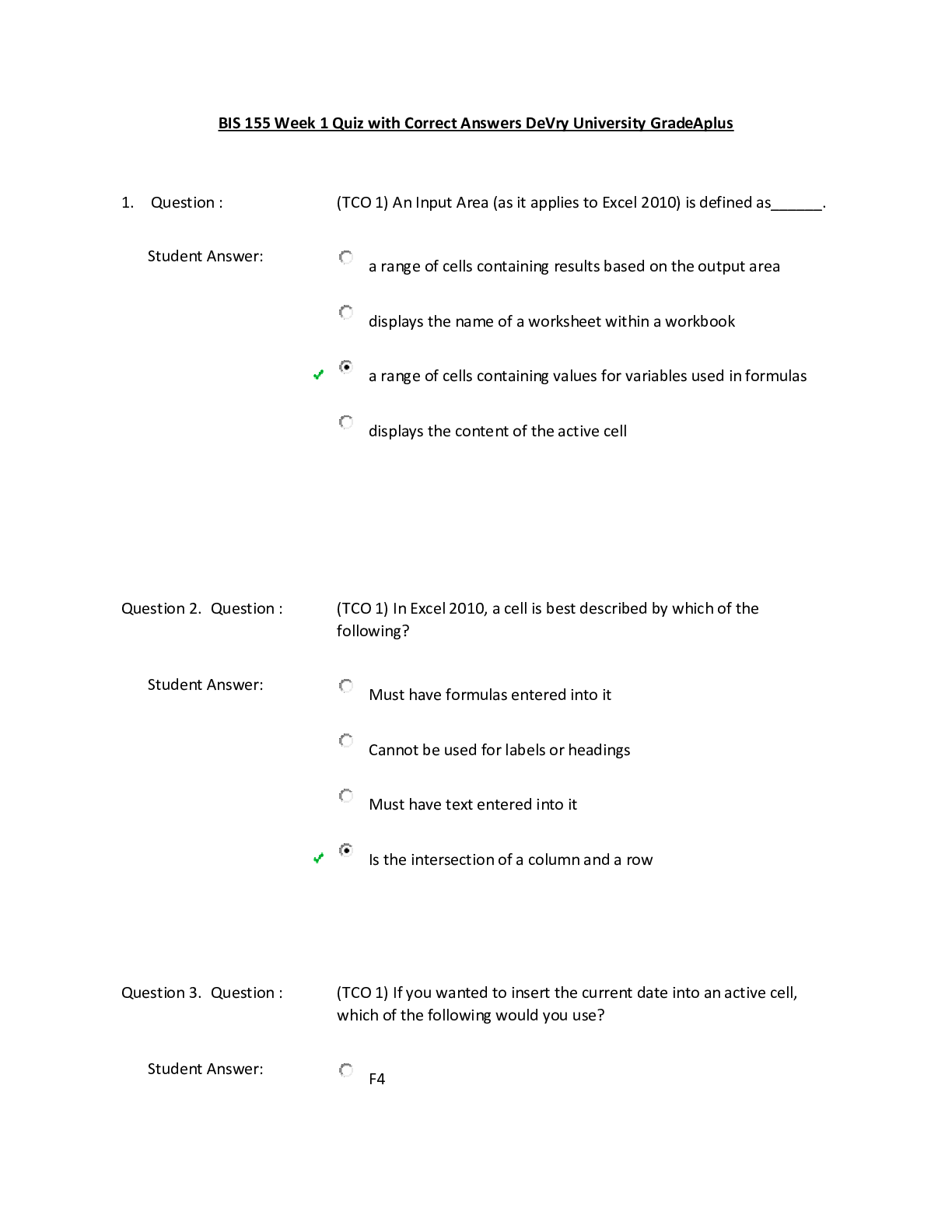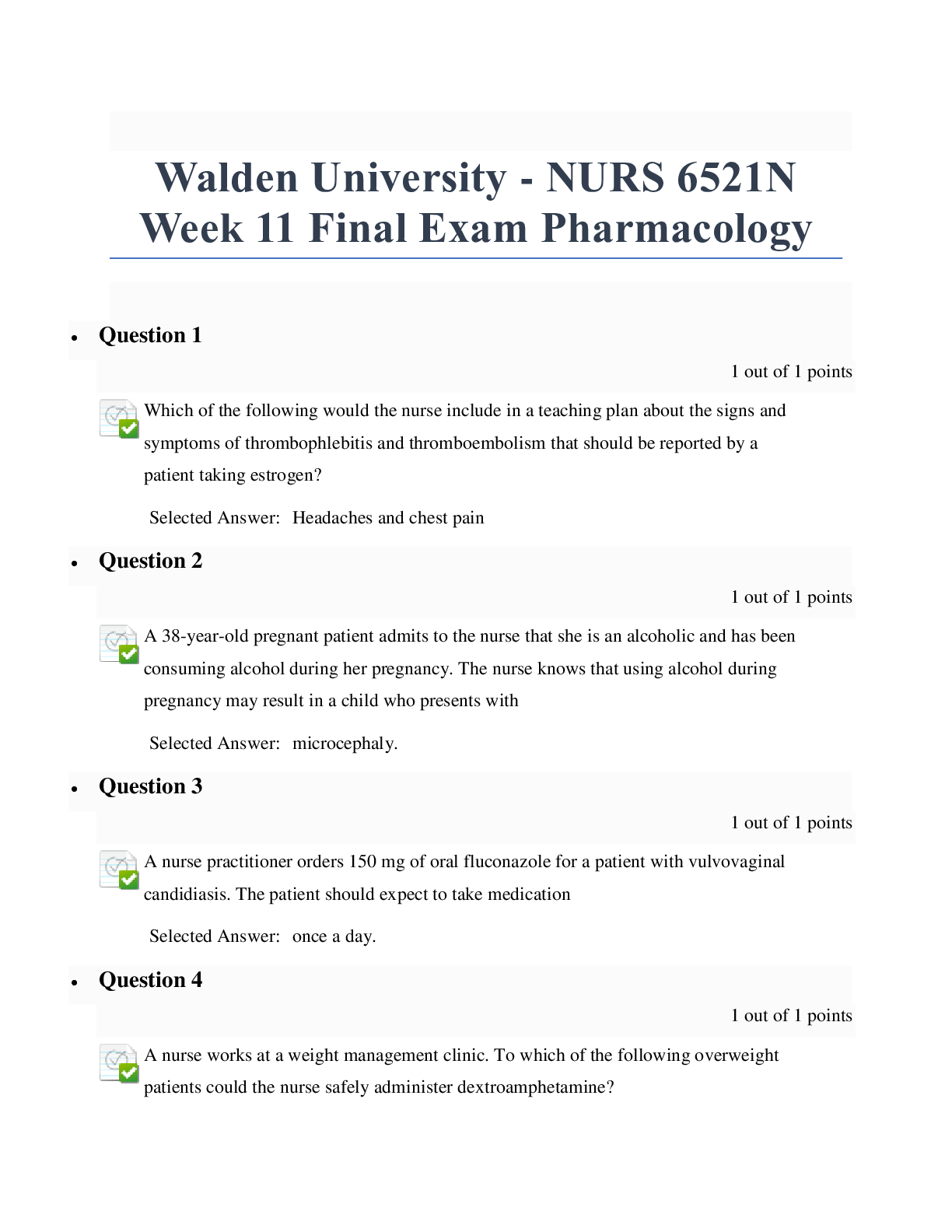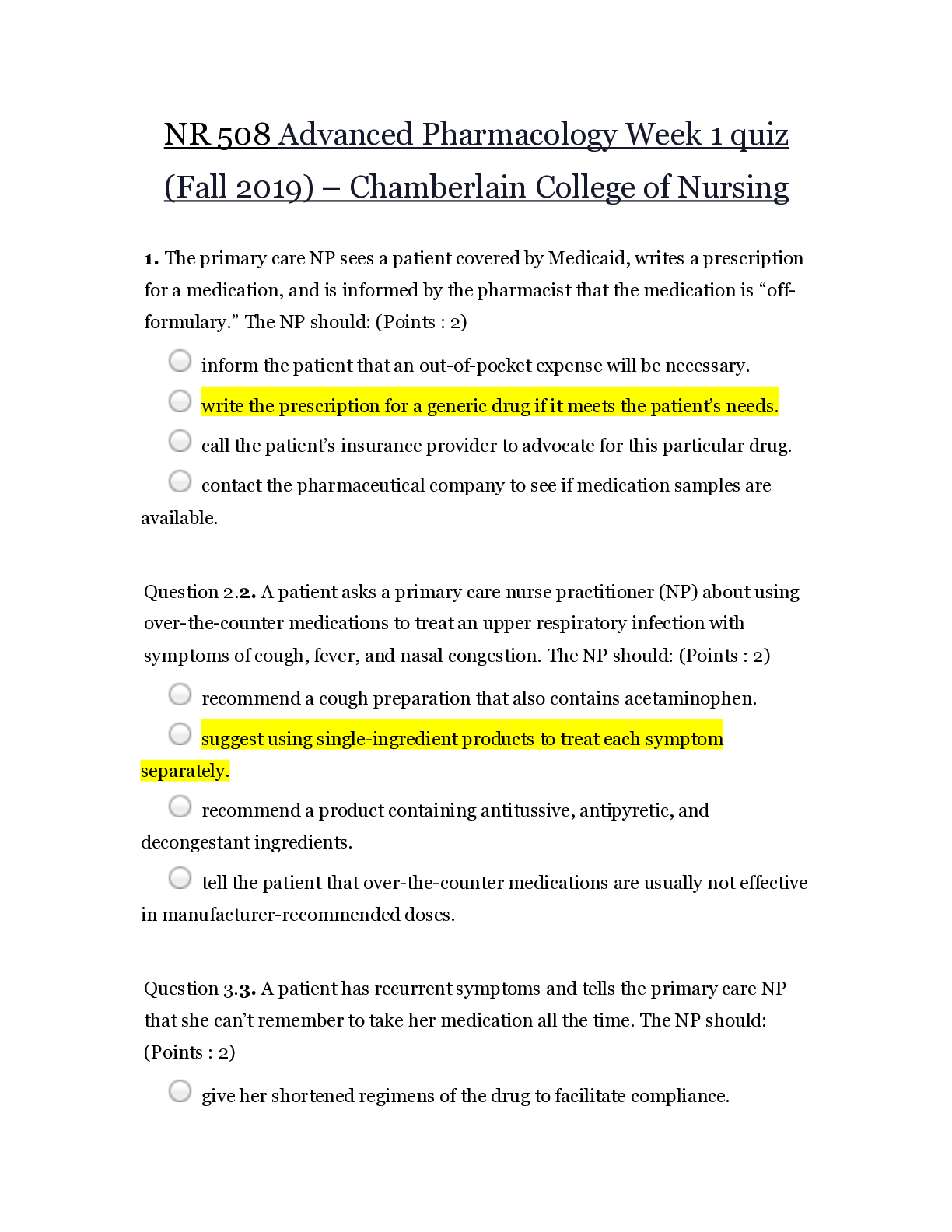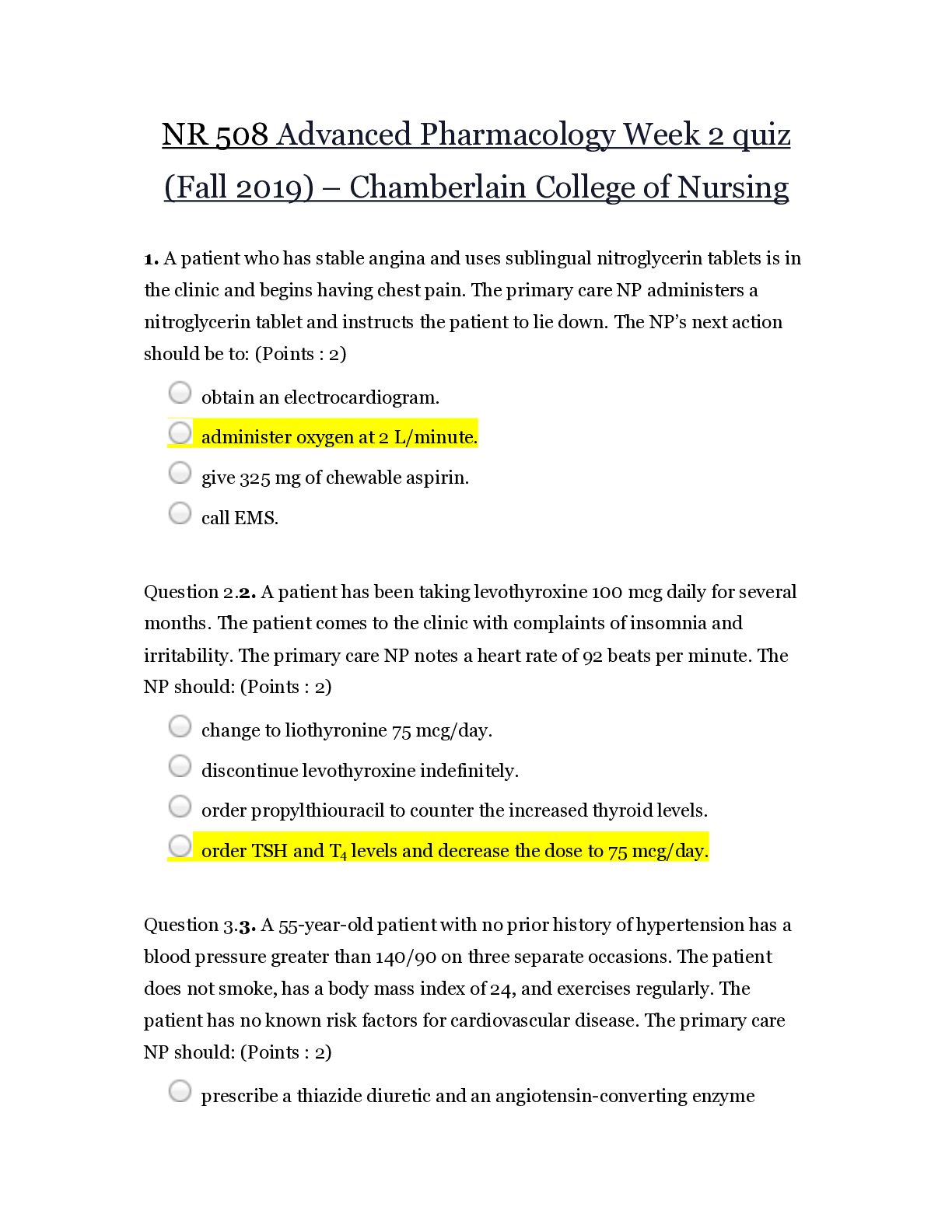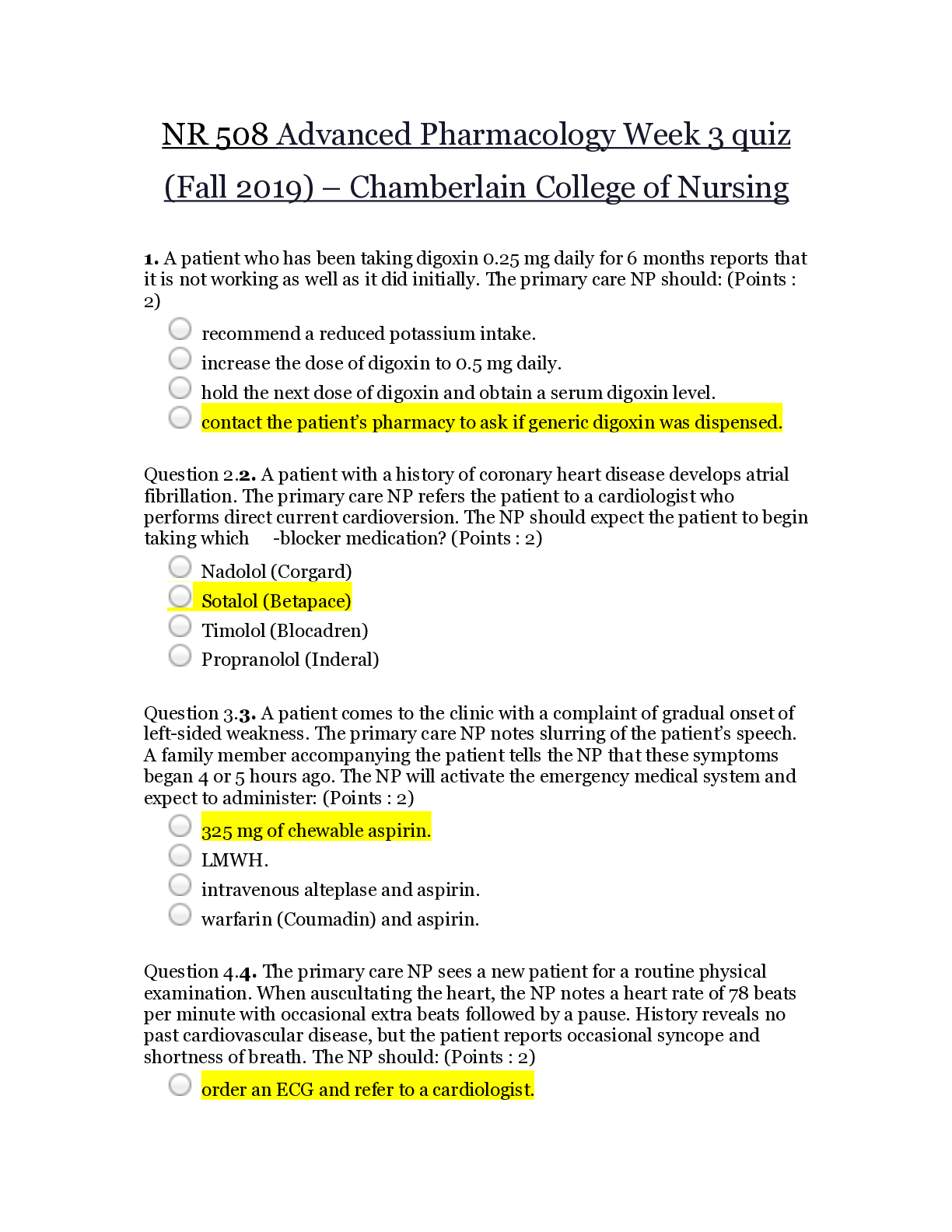Pharmacology > EXAM > NURS 6521 Pharmacology Week 1 Quiz with complete solution,Graded A, (All)
NURS 6521 Pharmacology Week 1 Quiz with complete solution,Graded A,
Document Content and Description Below
Pharmacology Week 1 Question 1 A patient is treated with an antibiotic for an infection in his leg. After 2 days of taking the antibiotic, the patient calls the clinic and reports that he has... a rash all over his body. The nurse is aware that a rash can be an adverse effect of an antibiotic and can be either a biologic, chemical, or physiologic action of the drug, which is an example of • Question 2 Which of the following statements best defines how a chemical becomes termed a drug? • Question 3 A patient has been prescribed an oral drug that is known to have a high first-pass effect. Which of the following measures has the potential to increase the amount of the free drug that is available to body cells? • Question 4 The culture and sensitivity testing of a patient's wound exudate indicates that a specific antibiotic is necessary for treatment. The United States Pharmacopeia–National Formulary indicates that the drug in question is 96% protein bound. What are the implications of this fact? • Question 5 A patient has been prescribed several drugs and fluids to be given intravenously. Before the nurse starts the intravenous administration, a priority assessment of the patient will be to note the • Question 6 A 60-year-old African-American man lives with a number of chronic health problems. Genetic factors are likely to influence his etiology and/or treatment of • Question 7 Talwin given in combination with Vistaril diminishes the adverse effects of nausea caused by the Talwin. This drug interaction affecting the pharmacodynamics of the Talwin is • Question 8 In response to a patient's nausea, the nurse has mixed a dose of an antiemetic with 50 mL of sterile normal saline and will administer the dose by IV piggyback. What is the rationale for the use of IV piggyback? • Question 9 The nurse is caring for a patient receiving an aminoglycoside (antibiotic) that can be nephrotoxic. Which of the following will alert the nurse that the patient may be experiencing nephrotoxicity? • Question 10 A nurse is caring for a patient who has had part of her small intestine removed due to cancer. She has also now developed hypertension and has been prescribed a new medication to decrease her blood pressure. While planning the patient's care, the nurse should consider a possible alteration in which of the following aspects of pharmacokinetics? • Question 11 5 ml = _______________tsp • Question 12 A patient who has been admitted to the hospital for a mastectomy has stated that she has experienced adverse drug effects at various times during her life. Which of the following strategies should the nurse prioritize in order to minimize the potential of adverse drug effects during the patient's stay in the hospital? • Question 13 A patient with a variety of chronic health problems is being seen by her nurse practitioner, who is currently reviewing the patient's medication regimen. Which of the patient's medications should prompt the nurse to teach her to avoid drinking grapefruit juice? • Question 14 In which of the following patients would a nurse expect to experience alterations in drug metabolism? • Question 15 A patient with a recent diagnosis of acute renal failure has a long-standing seizure disorder which has been successfully controlled for several years with antiseizure medications. The nurse should recognize that the patient's compromised renal function will likely • Question 16 A nurse is caring for a postsurgical patient who has small tortuous veins and had a difficult IV insertion. The patient is now receiving IV medications on a regular basis. What is the best nursing intervention to minimize the adverse effects of this drug therapy? • Question 17 An elderly postsurgical patient has developed postoperative pneumonia in the days following abdominal surgery and is being treated with a number of medications. Which of the following medications that the nurse will administer has the slowest absorption? • Question 18 An unconscious patient has been brought to the hospital, and the physician has prescribed a life-saving drug to be administered parenterally. Which of the following methods would be the most appropriate for the nurse to use when administering the medication? • Question 19 The nurse's assessment of a community-dwelling adult suggests that the client may have drug allergies that have not been previously documented. What statement by the client would confirm this? • Question 20 Tylenol 325 mg/tablet, patient needs 650 mg; how many tables should patient take? • Question 21 During a clinic visit, a patient complains of having frequent muscle cramps in her legs. The nurse's assessment reveals that the patient has been taking over-the-counter laxatives for the past 7 years. The nurse informed the patient that prolonged use of laxatives • Question 22 A patient who has ongoing pain issues has been prescribed meperidine (Demerol) IM. How should the nurse best administer this medication? • Question 23 An older adult patient with a history of Alzheimer's disease and numerous chronic health problems has been prescribed several medications during his current admission to hospital and recent declines in the patient's cognition have impaired his ability to swallow pills. Which of the following medications may the nurse crush before administering them to this patient? • Question 24 A nurse is discussing with a patient the efficacy of a drug that his physician has suggested, and he begin taking. Efficacy of a drug means which of the following? • Question 25 A patient has been prescribed 1 mg lorazepam (Ativan) sublingual prior to the scheduled insertion of a peripherally inserted central (PIC) line. How should the nurse direct the patient when administering this medication? • Question 26 A nurse is caring for a 92-year-old patient who is taking multiple drugs and displaying increased cognitive impairment and memory loss. The initial action of the nurse would be to • Question 27 A community health nurse is performing a home visit to an elderly client who receives twice-weekly wound care. The client has mentioned that she has been having difficulty sleeping, a problem that she has not previously experienced. Which of the following measures should the nurse suggest? • Question 28 A 90-year-old frail, elderly woman has arrived at the emergency department with a broken hip and in acute respiratory distress. Succinylcholine will be used because of the need for rapid endotracheal intubation, and then the woman will be sent to surgery. Due to the woman's frail condition, she is at risk for skin breakdown. Which of the following nursing diagnoses would be most appropriate? • Question 29 An 80-year-old man has been prescribed oxycodone for severe, noncancer, chronic pain. He tells the nurse that he has difficulty swallowing and asks if he can crush the tablet before swallowing. The nurse will advise the patient that • Question 30 A 70-year-old man who enjoys good health began taking low-dose aspirin several months ago based on recommendations that he read in a magazine article. During the man's most recent visit to his care provider, routine blood work was ordered and the results indicated an unprecedented rise in the man's serum creatinine and blood urea nitrogen (BUN) levels. How should a nurse best interpret these findings? • Question 31 Medication reconciliation of an 82-year-old man who has recently moved to a long-term care facility reveals that the man takes 1 to 2 mg of lorazepam bid prn. The nurse should recognize what consequence of this aspect of the resident's drug regimen? • Question 32 A 72-year-old man is taking Adderall XR for the treatment of narcolepsy. He is currently having problems with not being able to swallow large tablets or capsules. The man also wears dentures, which makes it even more difficult for him to swallow medication. He is in the clinic to talk to the nurse about his problem. The nurse will instruct him to • Question 33 A nurse is administering drugs to a 70-year-old patient who has a reduced plasma albumin level. When assessing the patient for therapeutic outcomes of drug therapy, the nurse will also be careful to observe for • Question 34 A nurse is caring for a 78-year-old patient with renal insufficiency and chronic heart failure who is receiving rapid infusions of high-dose furosemide. It will be a priority for the nurse to monitor for • Question 35 A nurse is caring for a 73-year-old man who is receiving drug therapy. He is beginning to exhibit signs of decline in his renal system, yet his current serum creatinine level is normal. The nurse will base the patient's plan of care on the understanding that there is • Question 36 Mr. Lacuna is an 83-year-old resident of a long-term care facility who has a diagnosis of moderate Alzheimer disease. Mr. Lacuna's physician recently prescribed oral rivastigmine, but he was unable to tolerate the drug due to its gastrointestinal effects. As a result, he has been ordered the transdermal patch form of the medication. When administering this form of rivastigmine, the nurse should • Question 37 Mrs. Houston is a 78-year-old woman who resides in an assisted living facility. Her doctor prescribed digoxin at her last visit to the clinic and she has approached the nurse who makes regular visits to the assisted-living facility about this new drug. What teaching point should the nurse emphasize to Mrs. Houston? • Question 38 A 79-year-old woman has been admitted to the hospital with a gastrointestinal bleed. She is currently receiving a transfusion of packed red blood cells as well as an infusion of pantoprazole (Protonix), a proton-pump inhibitor, to help stop her bleeding. What care setting is most appropriate for this patient? • Question 39 A 77-year-old man with a long history of absence seizures has been treated with ethosuximide for many years. The man is now in the process of moving to a long-term care facility and a nurse is creating a plan of care. The nurse understands the potential adverse effects of this drug and would consequently prioritize which of the following nursing diagnoses? • Question 40 A 66-year-old woman has a complex medical history that includes poorly-controlled type 1 diabetes, renal failure as a result of diabetic nephropathy and chronic heart failure (CHF). Her care provider has recently added spironolactone (Aldactone) to the woman's medication regimen. The nurse should consequently assess for signs and symptoms of [Show More]
Last updated: 1 year ago
Preview 1 out of 12 pages
Instant download
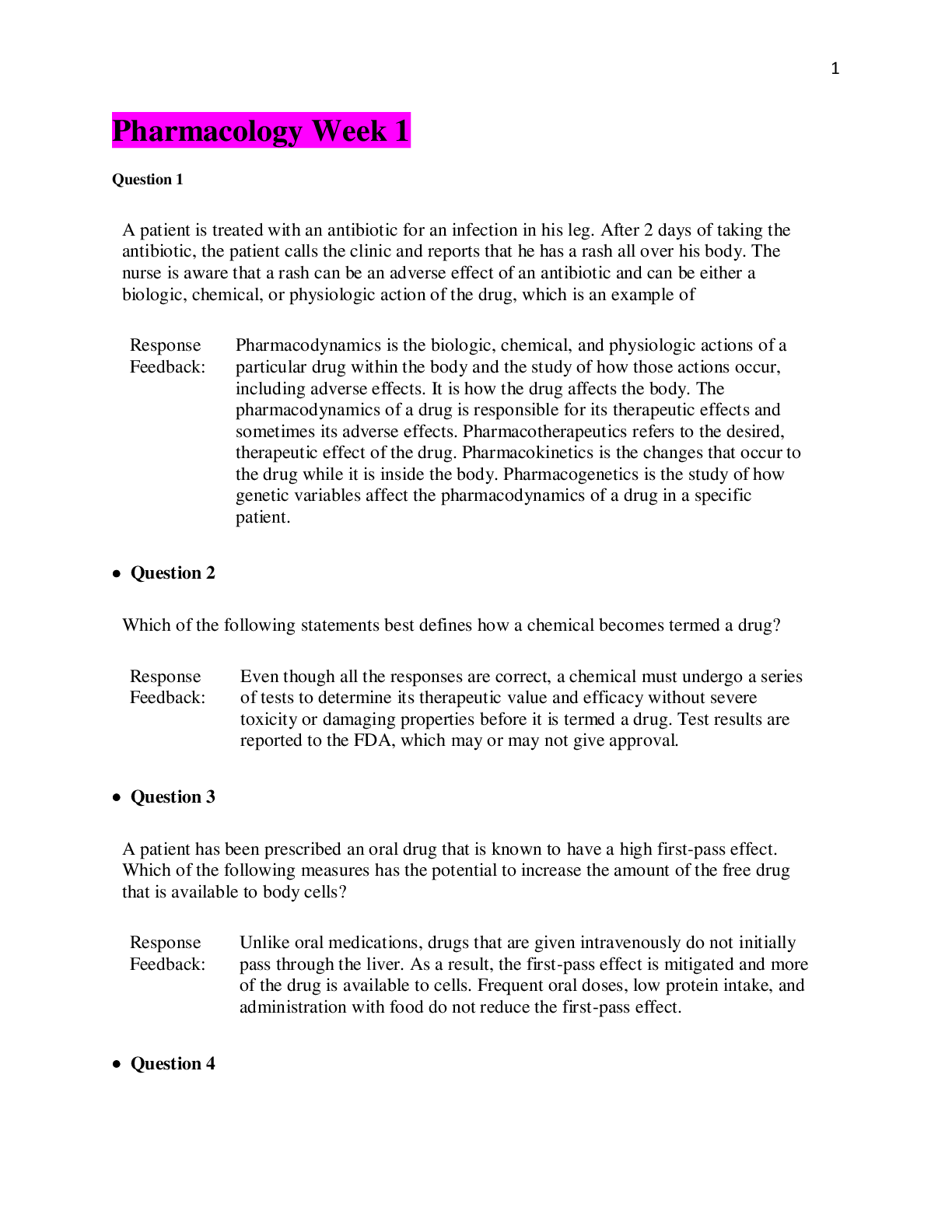
Buy this document to get the full access instantly
Instant Download Access after purchase
Add to cartInstant download
Reviews( 0 )
Document information
Connected school, study & course
About the document
Uploaded On
Dec 30, 2020
Number of pages
12
Written in
Additional information
This document has been written for:
Uploaded
Dec 30, 2020
Downloads
0
Views
37


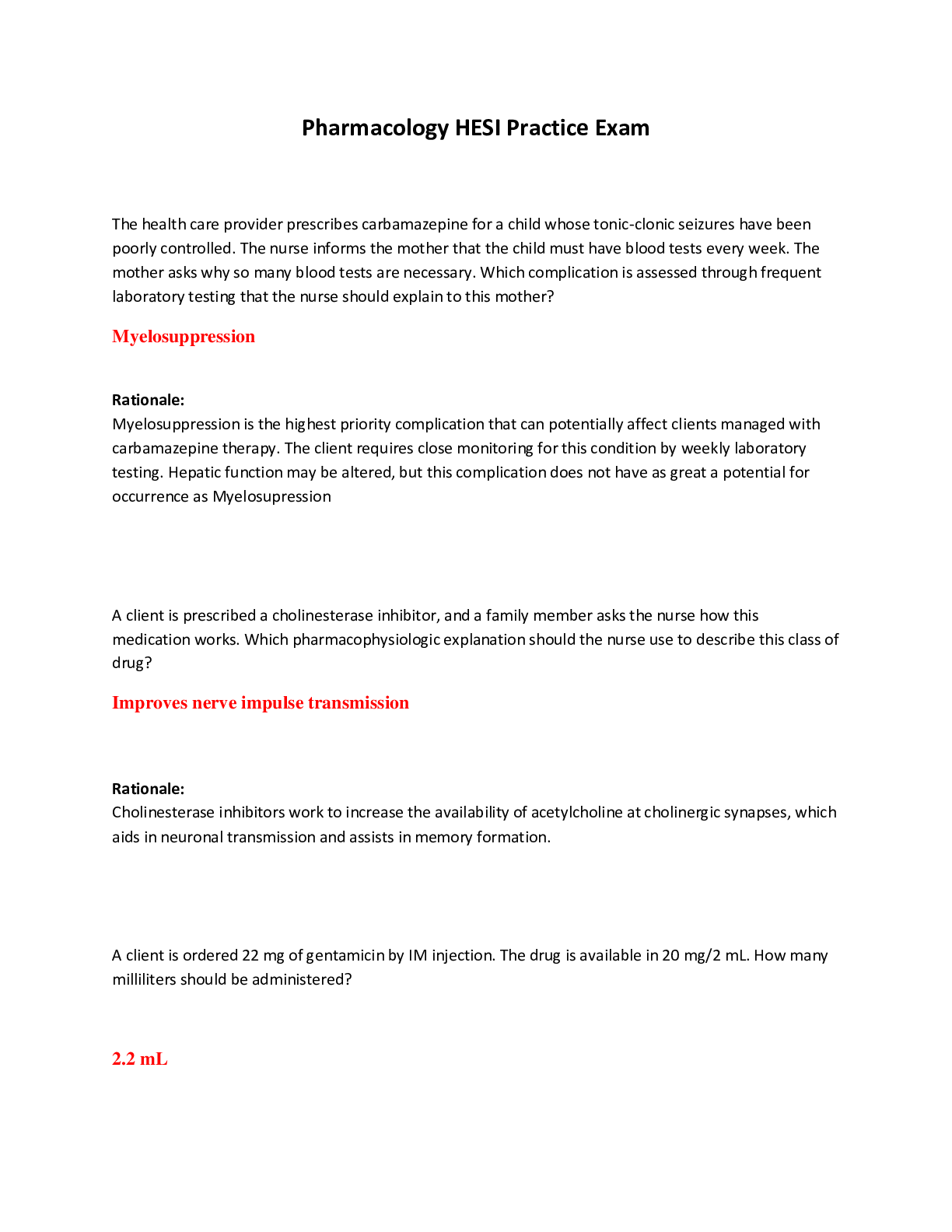
.png)
